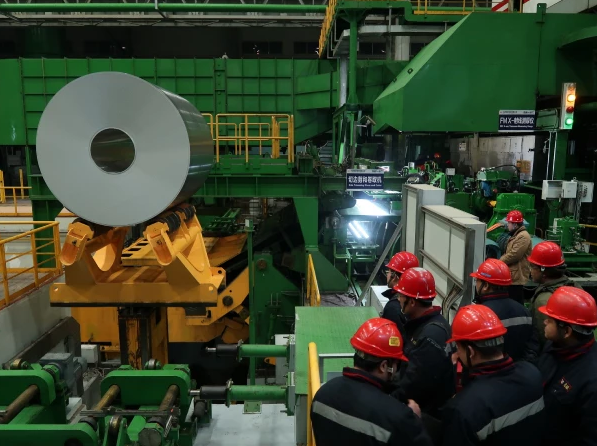

Through the continuous dedication of all personnel at Tianjin Zhongwang’s second hot rolling plant, the project "Reducing Power Consumption in the Rolling Workshop" has yielded remarkable outcomes. By April, electricity consumption had decreased by 15.3 per cent compared to the previous year, resulting in savings approaching nearly RMB 4 million from this single initiative.

About the second hot rolling plant
The second hot rolling plant, in its commitment to the company's lean management principles, has taken a unique approach. It has tailored initiatives to its specific production and operational realities, with a focus on reducing consumption, enhancing efficiency, and optimizing yield. At the heart of these strategies are various lean improvement projects that have been meticulously formulated and implemented.
A key priority among these initiatives is reducing electric energy consumption within the hot rolling process, which plays a pivotal role in controlling costs. Recognizing the importance of energy conservation, management at all levels of the second hot rolling plant has collaborated closely across departments—technology, quality, and equipment—to innovate and swiftly execute a range of improvement plans.
In field management, production staff respond to site conditions by modifying and adhering strictly to adjusted time indicators, such as reducing downtime for roll changes and cleaning operations. They ensure these adjustments are rigorously implemented.
Detailed analysis of production parameters
Process improvement involves detailed analysis of production parameters and quality metrics, facilitating optimized processes while maintaining high product quality standards. In production scheduling, efforts balance timely product delivery with effective cost control. This includes promoting batch production and optimizing equipment utilization to minimize power consumption.
The company remains committed to advancing lean management principles, intensifying practical applications, and leveraging cost reduction initiatives to their fullest extent. Emphasis is placed on eliminating unnecessary waste as a catalyst for continuous improvement. This commitment is a driving force to advance lean production efforts further, aiming for new milestones and establishing an exemplary production line characterized by superior quality, substantial benefits, and cutting-edge management practices.
Responses








